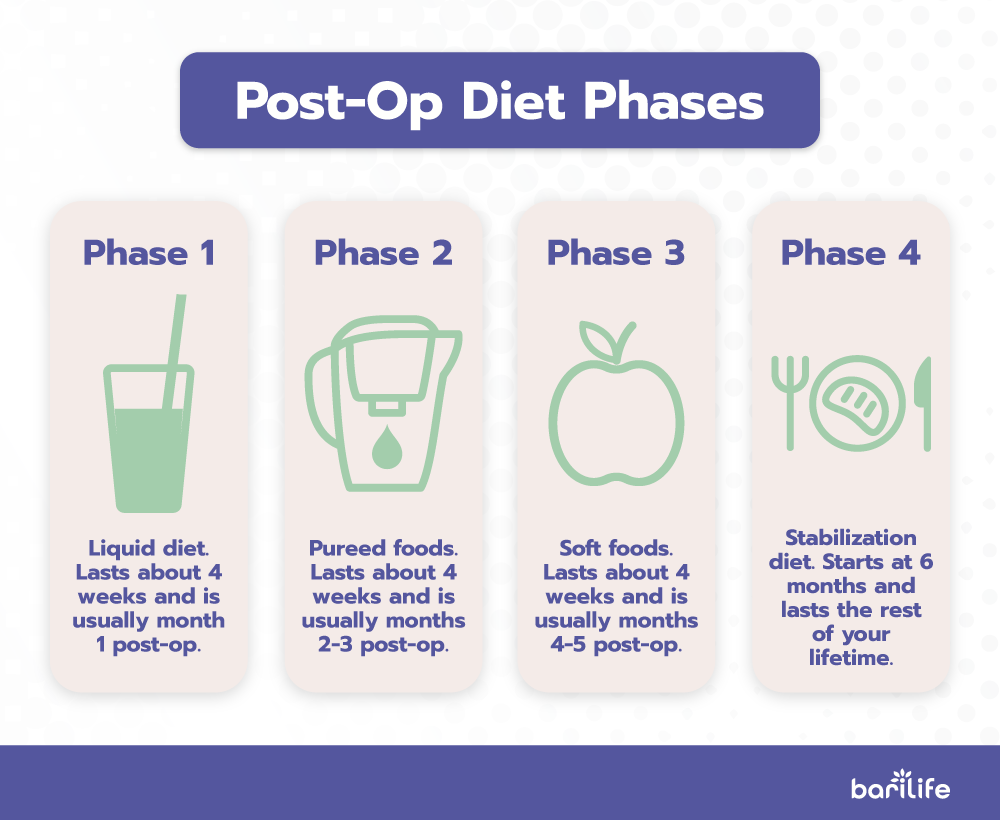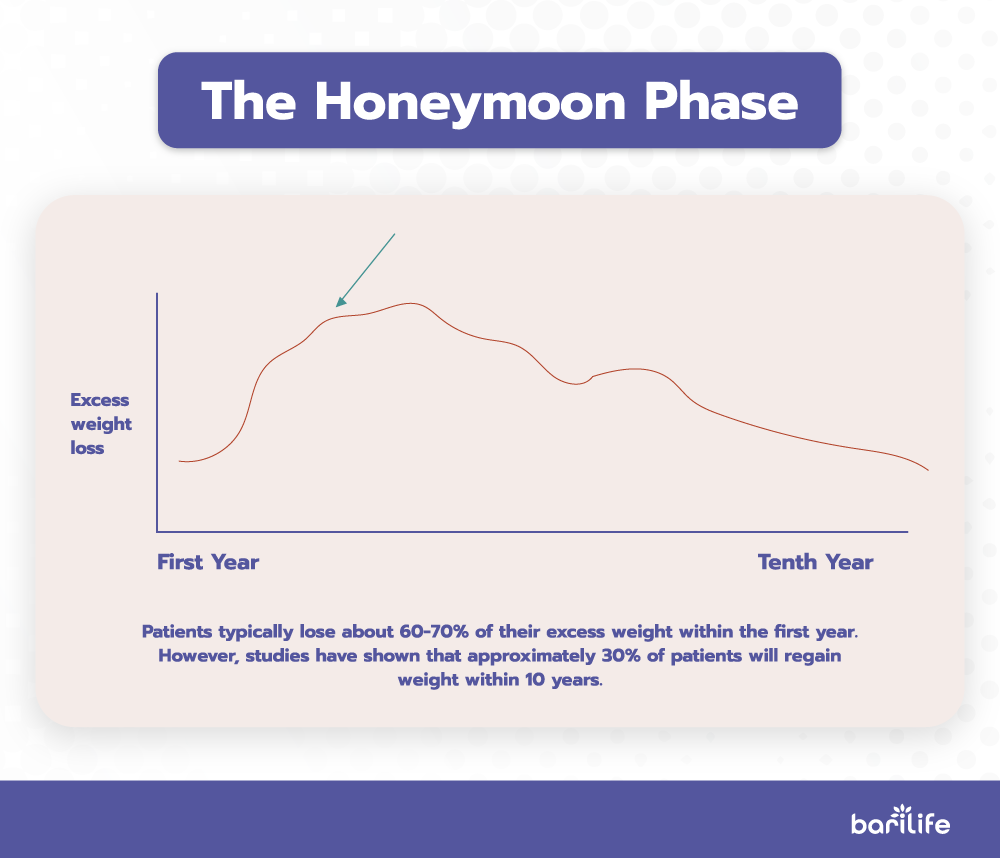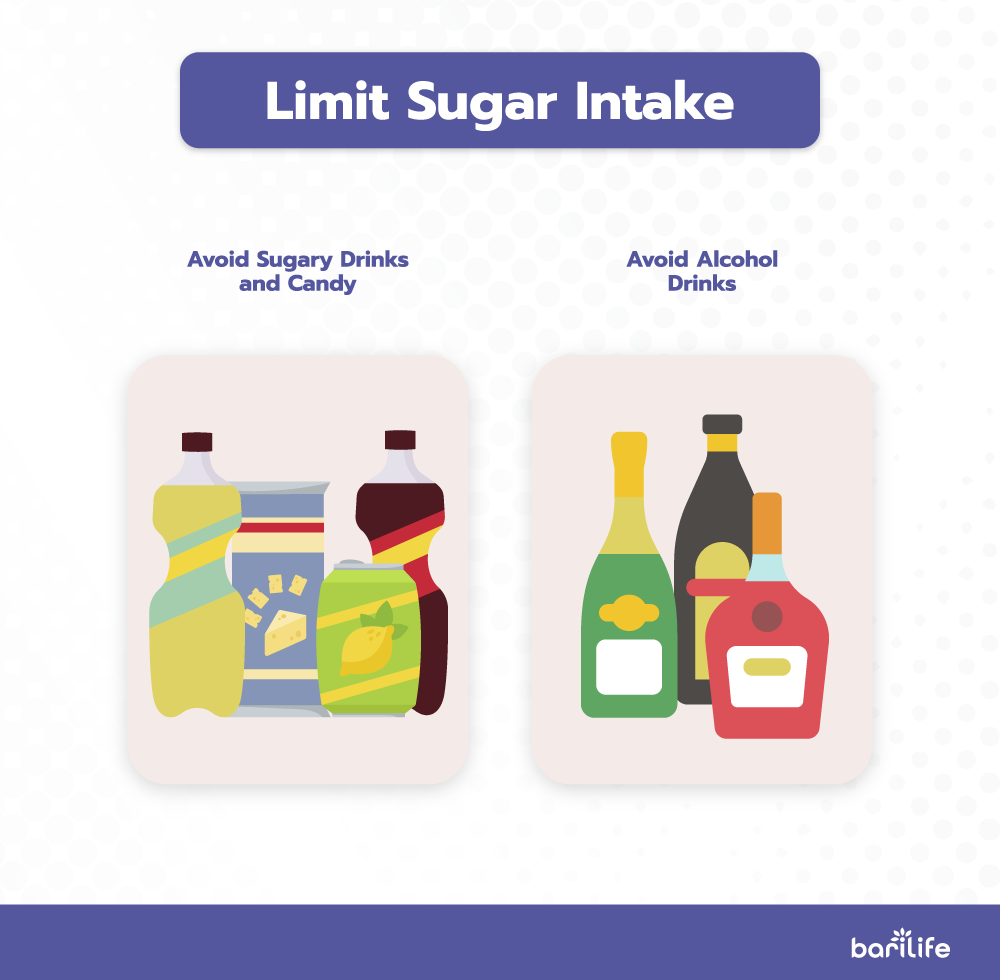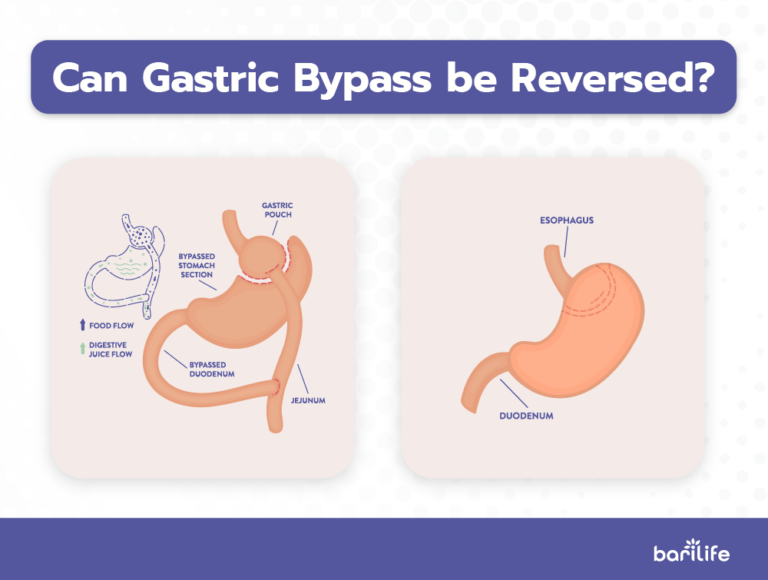Gastric sleeve surgery is one of the most popular bariatric weight loss surgeries. The procedure has a high success rate as well, with the average excess weight loss (EWL) two years post-op being around 65%. Weight loss tends to taper off six months after your surgery date and the honeymoon phase ends. However, maintaining a healthy diet and exercise can aid with additional weight loss and help you maintain your weight long-term. Let’s review the post-op diet phase, the honeymoon phase, and diet tips to keep the weight off or reverse any unwanted weight regain.
Post-Op Diet Phases
After your gastric sleeve surgery, you will progress through several diet phases. These include:
Phase 1: Liquid diet. Lasts about 4 weeks and is usually month 1 post-op.
Phase 2: Pureed foods. Lasts about 4 weeks and is usually months 2-3 post-op.
Phase 3: Soft foods. Lasts about 4 weeks and is usually months 4-5 post-op.
Phase 4: Stabilization diet. Starts at 6 months and lasts the rest of your lifetime.
As you see above, your two years post-op gastric sleeve diet will be phase 4 or the stabilization diet. This is where you can eat foods of normal consistency, but will need to track intake to control your weight long-term and avoid weight regain.

The Honeymoon Phase
The “honeymoon phase” is often the first year post gastric sleeve surgery. This is where individuals are highly committed to their diet and weight loss routine. They typically lose about 60-70% of their excess weight within the first year. However, studies have shown that approximately 30% of patients will regain weight within 10 years. Thus, it’s crucial to understand and adhere to your diet and exercise routines.

Tips for a Two Years Post-Op Gastric Sleeve Diet
Let’s review some diet tips to keep the excess weight off if you’re two years post-op gastric sleeve. Or if you’ve gained a few pounds, some ways to reverse weight gain.
Eat Lean Protein
Eating protein is an essential aspect of any healthy diet. However, the type of protein you eat does matter. During weight loss, eating lean protein is especially important to protect against loss of lean body mass. You should consume at least 60g of protein per day, but the recommended amount is usually between 65 to 75 grams per day. This can vary depending on your surgeon’s recommendations, excess weight loss, and body mass index (BMI).
As we mentioned, it’s important to consume lean protein, since it has lower fat content and calories. Some examples include fish, yogurt, cottage cheese, and chicken. Making sure you get enough protein in your diet can be difficult, so surgeons often recommend protein supplements. When eating meals, eat your protein first, as this will make you feel full faster and can better control blood sugar levels.

Limit Sugar Intake
Consuming too much sugar can contribute to weight gain and chronic health conditions, such as diabetes or cardiovascular disease. Therefore, limiting or lowering your sugar intake is a vital aspect of a healthy lifestyle.
First, avoid or limit the number of sugary drinks you consume, such as juices or sodas. These are often empty calories and if you’re trying to lose weight, you’ll have to account for these extra calories. Also, limit or don’t drink alcohol, as this is high in sugar content and studies have shown an increased risk for alcohol use disorder after bariatric surgery.
In addition, avoid sauces with added sugar, such as ketchup or sweet chili sauce. Instead, opt for the “no sugar added” version or avoid sauces altogether. Make sure to read food labels before consuming any packaged item. You may be surprised by its sugar content!

Lower Fat Intake
Another important aspect of a healthy diet and keeping weight off two years post-op gastric sleeve is to lower your fat intake. Fat intake should be limited to 25-30% of your total calories consumed. For example, if you consume 1200 calories per day, you should consume no more than 360 calories of fat. There are 9 calories per gram of fat, so divide 360 by 9. The result is 40; so you will limit your fat intake to 40g per day.
Some ways to lower your fat intake include eating more lean protein, baking or grilling meats, and adding herbs or spices to your food instead of butter or margarine.
Plan Your Meals
Planning your meals is an excellent way to monitor your food and nutritional intake. Research shows that meal planning leads to a better quality lifestyle and better overall nutrition. It can even prevent obesity, which is especially important several years after gastric sleeve surgery.
When planning your meals, create balanced meals that are high in lean proteins and have moderate portions of vegetables. When shopping, opt for fresh vegetables over canned or frozen vegetables. Canned and frozen vegetables lose their nutritional value and can be high in sodium or sugar. When cooking, avoid using butter or oils to flavor foods. Instead, steam vegetables or add herbs and spices to give added flavor.
Take Your Supplements
Many post-op gastric sleeve surgery patients have metabolism and nutritional deficiencies. This is because your gastrointestinal tract is altered, causing changes to nutrition and vitamin absorption. Some deficiencies can include vitamin B12, iron, calcium, or vitamin D. Therefore, following up with your surgeon and other healthcare providers is important to monitor for any nutritional deficiencies. In addition, make sure you are taking supplements as prescribed by your surgeon. BariLife offers a variety of supplements and vitamins designed for gastric sleeve post-op patients.

Track Your Stats
Research shows that diet and exercise adherence declines as weight loss slows. Track your food, water, and weight to decrease the likelihood of falling off your weight loss plan. Keeping a food diary is a great way to track your caloric and protein intake and also keeps you accountable.
Also, track your water intake. Water is a natural appetite suppressant and can help control food cravings. To track your weight loss, weigh yourself regularly and at the same time of day. Weight can fluctuate throughout the day, so it’s important to weigh yourself around the same time to have an accurate number. Keeping a weight diary is another way to track your weight loss. It can be inspirational and help you monitor any mild changes in your weight.
Try a Jump Start Diet
Sometimes to recalibrate your body and food cravings, a Jump Start Diet is a great option. The Jump Start Diet is designed to reduce the size of your gastric pouch. Thus, reducing food cravings and feeling fuller faster.
Exercise
Exercise is an essential component of any weight loss plan, even two years post gastric sleeve surgery. The Centers for Disease Control and Prevention recommend adults exercise at least 150 minutes per week. Break up your exercise into 30 minutes increments over 5 weekdays. Exercises should include aerobic cardiovascular activities, as well as weight-bearing exercises.
Remember, weight loss and maintaining your weight is a lifelong commitment. Try some of these tips to keep the weight off or reverse unwanted weight regain.




What are your tips and tricks to post-bariatric success?